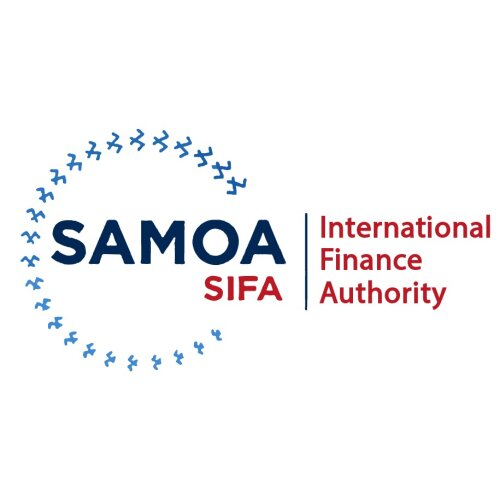Best Restructuring & Insolvency Lawyers in Apia
Share your needs with us, get contacted by law firms.
Free. Takes 2 min.
List of the best lawyers in Apia, Samoa
About Restructuring & Insolvency Law in Apia, Samoa
Restructuring and insolvency law in Apia, Samoa, governs the processes that businesses and individuals must follow when they encounter financial distress or become unable to meet their financial obligations. The legal framework provides mechanisms for the orderly restructuring of debts, liquidation of assets, and resolution of creditor claims. This area of law aims to protect the interests of creditors, support the possibility of financial recovery, and uphold economic stability in the local business environment. The approach in Apia is influenced by both local statute and principles common in Commonwealth legal systems.
Why You May Need a Lawyer
There are several reasons why someone in Apia might require legal help with restructuring and insolvency matters:
- If your business is facing financial difficulties and you are considering options to restructure debts or negotiate with creditors.
- If you are an individual who is unable to pay personal debts and want to understand possible relief mechanisms.
- If you are a creditor seeking to recover owed money from an insolvent entity or individual.
- If you need advice on director or officer liability during insolvency proceedings.
- If you must navigate complex legal processes such as voluntary administration, receivership, or liquidation.
- If you need representation in court or before government authorities regarding insolvency matters.
- If you want to ensure full compliance with local insolvency regulations to avoid further legal or financial penalties.
Local Laws Overview
The legal basis for restructuring and insolvency in Samoa primarily comes from the Companies Act 2001 and complementary regulations that provide detailed procedures for handling corporate insolvency, liquidations, and receiverships. Key aspects include:
- The distinction between voluntary and involuntary liquidation processes for companies in financial distress.
- Regulations on the appointment, powers, and duties of liquidators and receivers.
- Provisions for creditors' meetings and the distribution of recovered assets among creditors according to statutory priorities.
- Rules addressing the restructuring of debt agreements and the possibility of business revival before full liquidation is necessary.
- Obligations placed on company directors to act responsibly and avoid insolvent trading, with penalties for breaches.
- Guidance on cross-border insolvency issues, especially when assets or claimants are located outside Samoa.
Frequently Asked Questions
What is insolvency?
Insolvency is the financial state in which an individual or company cannot pay debts as they fall due. In Samoa, insolvency may be declared formally through court proceedings or by resolution of a company's directors and shareholders.
What is the difference between liquidation and restructuring?
Liquidation involves winding up a company’s affairs and distributing assets to creditors before the company is dissolved. Restructuring seeks to reorganize the company’s finances and operations so it can continue trading, often by renegotiating debts or contracts.
Can individuals as well as businesses become insolvent?
Yes, both individuals and businesses can become insolvent in Samoa. Individuals may face bankruptcy proceedings, while companies may be subject to liquidation or restructuring procedures.
What happens to employees during insolvency?
Employees’ rights are protected in insolvency proceedings, but their claims, such as unpaid wages, are usually treated as preferred debts. This means employees are entitled to payment before most other creditors, but there may be delays or partial payments depending on available assets.
What duties do company directors have during insolvency?
Directors have a duty to act in the best interests of the company and its creditors during insolvency. They must not allow the company to trade while insolvent and should cooperate with liquidators or administrators.
How are creditors paid during insolvency?
Creditors are paid in a specific order determined by law. Secured creditors, employees, and tax authorities often have priority, while unsecured creditors are paid with any remaining funds.
Is court approval required for liquidation?
Certain types of liquidation, such as compulsory liquidation, do require court approval in Samoa, while others, like voluntary liquidation, may be initiated by company resolution.
Can insolvency proceedings be stopped once started?
In some cases, insolvency proceedings can be halted if debts are paid in full or a restructuring agreement is reached and approved by the relevant parties and authorities.
What are the consequences of bankruptcy for individuals?
Bankruptcy can affect an individual’s ability to obtain credit, manage assets, or hold certain positions. Discharged bankrupts may regain some rights after a specified period.
How long do insolvency proceedings usually take?
The timeline varies depending on the complexity of the case, the nature of assets, and the cooperation of all involved parties. Simple cases may conclude in a few months; complicated matters can take years.
Additional Resources
If you require more information or assistance regarding restructuring and insolvency in Apia, Samoa, the following entities may be helpful:
- Ministry of Commerce, Industry and Labour (MCIL) - Responsible for company registration and regulatory oversight.
- Supreme Court of Samoa - Handles insolvency-related court proceedings and disputes.
- Law Society of Samoa - Can provide referrals to qualified lawyers who specialize in insolvency matters.
- Registered Accountants and Insolvency Practitioners - Professionals authorized to act as receivers or liquidators.
Next Steps
If you suspect that you or your business may be experiencing financial distress in Apia, Samoa, consider these steps:
- Gather all relevant financial documentation, including debt statements, asset lists, and contracts.
- Seek timely legal advice from an experienced lawyer with knowledge of Samoan restructuring and insolvency law.
- Consult with a registered accountant or insolvency practitioner if advised.
- Understand your obligations and rights before taking action to avoid personal liability or further legal complications.
- Cooperate with all required authorities and attend any scheduled meetings or court hearings as necessary.
Early and proactive engagement with legal professionals increases your chances of achieving a favorable outcome, whether that involves business recovery, a managed liquidation, or a fair resolution of debts.
Lawzana helps you find the best lawyers and law firms in Apia through a curated and pre-screened list of qualified legal professionals. Our platform offers rankings and detailed profiles of attorneys and law firms, allowing you to compare based on practice areas, including Restructuring & Insolvency, experience, and client feedback.
Each profile includes a description of the firm's areas of practice, client reviews, team members and partners, year of establishment, spoken languages, office locations, contact information, social media presence, and any published articles or resources. Most firms on our platform speak English and are experienced in both local and international legal matters.
Get a quote from top-rated law firms in Apia, Samoa — quickly, securely, and without unnecessary hassle.
Disclaimer:
The information provided on this page is for general informational purposes only and does not constitute legal advice. While we strive to ensure the accuracy and relevance of the content, legal information may change over time, and interpretations of the law can vary. You should always consult with a qualified legal professional for advice specific to your situation.
We disclaim all liability for actions taken or not taken based on the content of this page. If you believe any information is incorrect or outdated, please contact us, and we will review and update it where appropriate.











